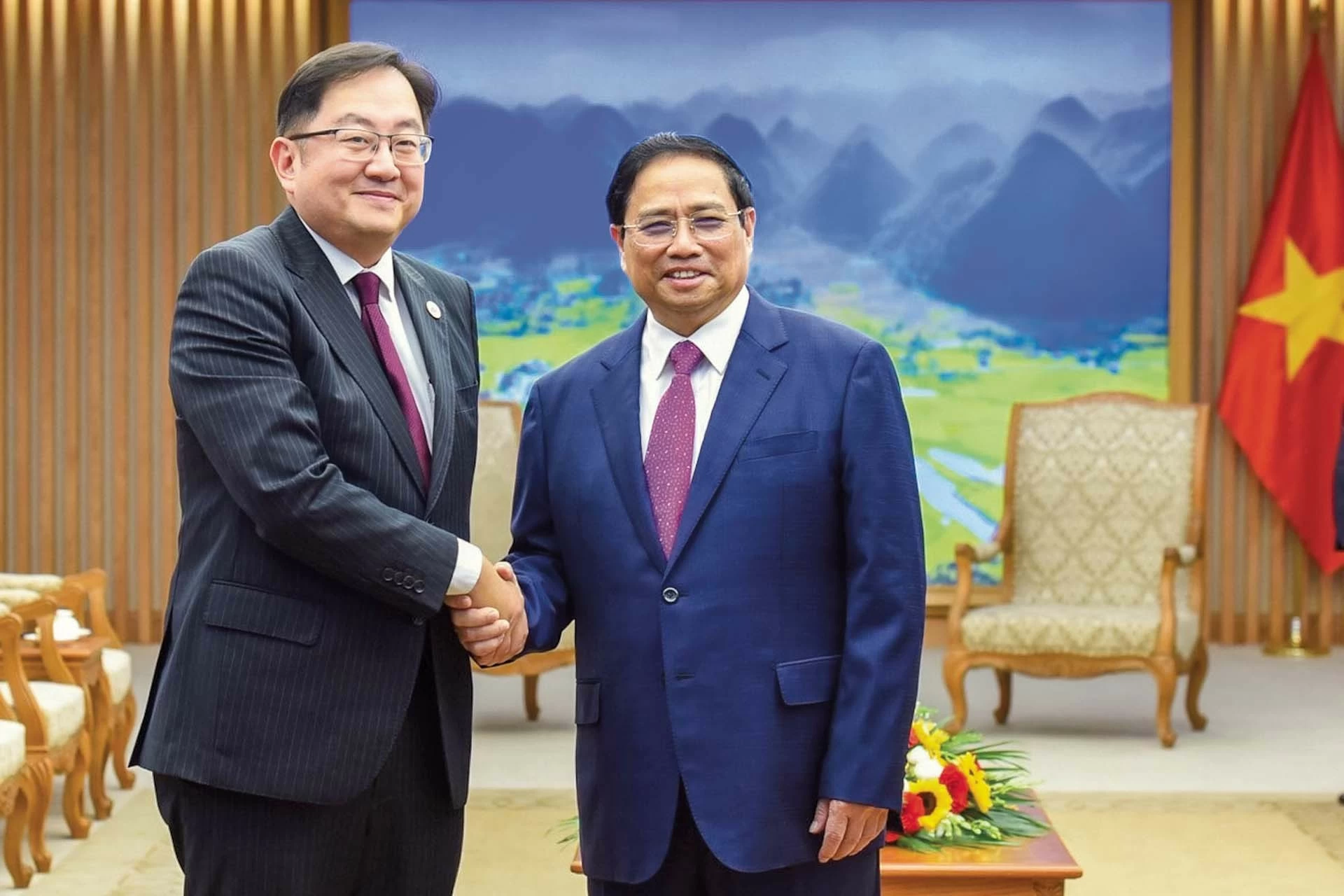
Malaysia will focus on the core priorities of ASEAN
Latest
 |
| Prime Minister Pham Minh Chinh received Malaysian Ambassador to Vietnam Dato' Tan Yang Thai at the Government Office, April 7, 2023. (Source: VGP) |
After the World War II, newly independent countries in the region grappled with colonial fragmentation that created political and economic boundaries that were not based on the region’s historical or cultural realities. This was compounded by varied ideological influences that presented challenges and complications to regional relations and cooperation, including limiting economic cooperation.
With such ominous odds for the region, the founding five members – Indonesia, Malaysia, the Philippines, Singapore and Thailand were able to transcend the challenges, coming together to form ASEAN on August 8, 1967 in Bangkok, Thailand. Since then, we have welcomed Brunei Darussalam in 1984, Vietnam in 1995, Lao PDR and Myanmar in 1997, and Cambodia in 1999. We look forward to welcoming Timor Leste as the newest addition to the ASEAN family soon.
With the establishment of and the inclusion of countries in the region into its fold, ASEAN was able to promote regional stability, as it provided an avenue for dialogue and cooperation across political-security, economy, and social – cultural matters among its Member States.
I believe that one of ASEAN’s impressive, and also important achievements is how crucial its establishment and enlargement has been in fostering stability, driving economic integration, nurturing a shared regional identity, facilitating collaborative responses to challenges, amplifying global influence, nurturing resilience, and promoting development. Its ability to unify diverse countries under common goals and principles significantly contributes to regional harmony and progress.
The ASEAN Community Vision 2024 (ACV 2045) consists of 5 key elements namely, ASEAN Political-Security Community (APSC), ASEAN Economic Community (AEC), ASEAN Social Cultural Community (ASCC), ASEAN Connectivity, and Institutional Strengthening. The draft ACV 2045 and these Strategic Plans will be adopted together by the ASEAN Leaders during Malaysia’s Chairmanship in 2025.
Malaysia, as the Permanent Shepherd of the High–Level Task Force on ASEAN Community Post–2025 Vision (HLTV–ACV), is currently co-chairing the HLTF-ACV meetings with Laos, the Chair of ASEAN in 2024. These meetings serve as crucial platforms for discussing ASEAN’s future.
Looking forward to 2025, when Malaysia takes up the Chairmanship of ASEAN, Malaysia will remain committed to continuing the good work of these deliberations towards the final delivery and adoption of the ACV 2045, the Strategic Plans of the respective Community Pillars, and the ASEAN Connectivity.
Malaysia intends to continue playing a conducive role; encouraging ASEAN Member States to focus on the core priorities that will enable ASEAN to not only be agile and effective in meeting the challenges in years to come; but also, be proactive in creating and protecting the environment that promotes and prioritises ASEAN centrality in issues of importance to this region and beyond.
2025 will be a significant year for ASEAN, as it will celebrate a decade of the formal establishment of the ASEAN Community. In addition, ASEAN will also adopt the ASEAN Community Vision 2045 which will set the long-term strategic direction of the Association for the next 20 years.
As the incoming Chair of ASEAN for 2025, Malaysia will place greater emphasis on the peoples of the region, who form the nucleus of the Community. This overarching focus is in line with the regional ethos and aspiration towards realizing a truly people-centered Community.
Malaysia will further be advocating for the upholding of the UN principles, the ASEAN Charter, and international law, as well as encouraging ASEAN to strengthen its commitment to intra-region trade and investment. Malaysia will also be pushing ASEAN to capitalize on the positive aspects of digitalization and artificial intelligence (AI). Our ASEAN Community-building efforts will also emphasize sustainable regional integration, towards ensuring social and economic justice.
2025 will mark 30 years since Vietnam was welcomed into the ASEAN fold. Since that time, Vietnam has gone through a sea change in its economic development, successfully raising itself from being one of the world’s least developed countries to a middle-income economy in one generation. Vietnam is now aiming to become a high-income country by 2045.
Internationally, Vietnam has carved a place for itself among the global family of nations, as a country that is adept at fostering strong bilateral ties with important partners, a responsible and active participant in the multilateral fora, and a supporter of the essential principles of the United Nations Charter and international law.
With Viet Nam’s skillful implementation of its ‘bamboo diplomacy’, Vietnam has been a valued and responsible member of ASEAN, contributing positively to the development and strengthening of the ‘ASEAN common roof’. Viet Nam’s contribution to ASEAN encompasses a broad range of areas, including regional stability, economic integration, sustainable development, cultural exchange, leadership, and advocacy for ASEAN’s centrality. Its active participation and engagement have strengthened ASEAN’s effectiveness and coherence, supporting the organization’s goals and enhancing regional cooperation.












